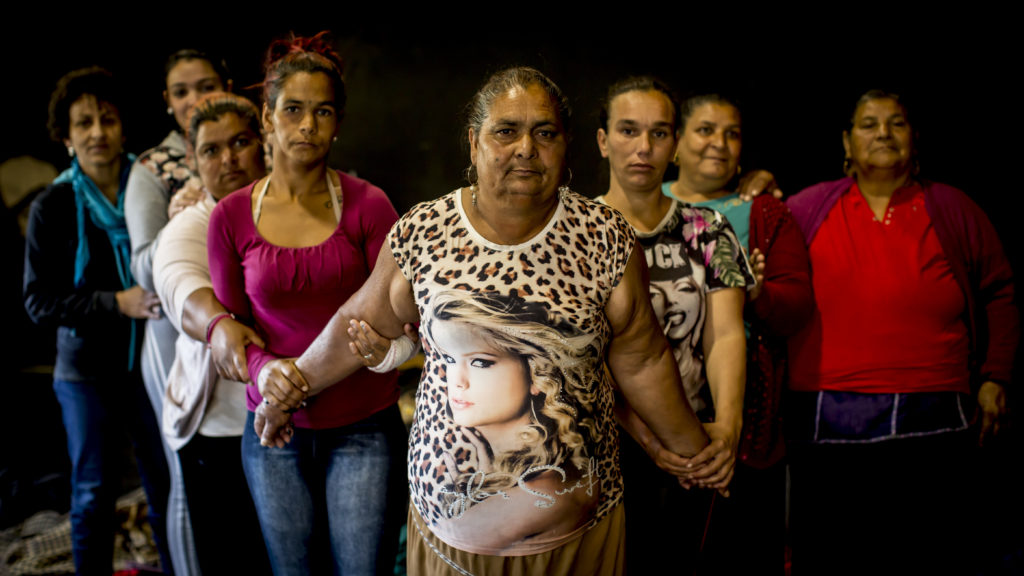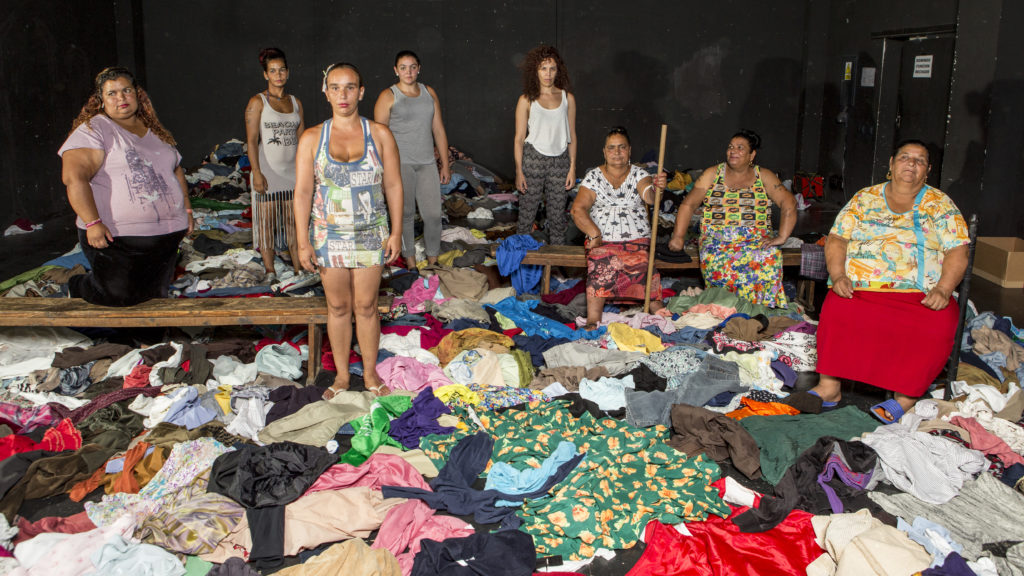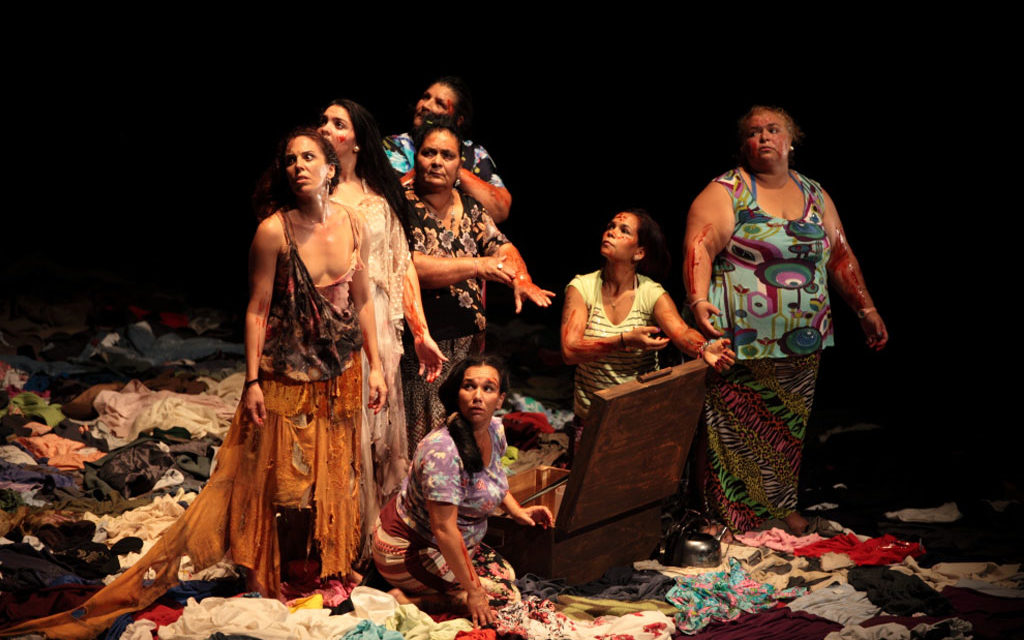TNT El Vacie is one of the most unique theatre companies in Spain. This group of Gypsy illiterate women from the shanty town of El Vacie, in Seville, and their director, Pepa Gamboa, surprised the country in 2009 with their inimitable version of Federico García Lorca’s The House of Bernarda Alba. For their second production, Gamboa wanted another classic that could speak to the experience of these women, who belong to one of the most marginalized groups in Spanish society, and she reached back to the Spanish Golden Age to find Lope de Vega’s Fuenteovejuna. Carme Portaceli, the new director of the Teatro Español (Spanish Theatre) is opening her first season as director of this important public theatre with TNT El Vacie’s Fuente Ovejuna from January 20th – 29th, and her choice sends a political message of social inclusiveness and feminist awareness.
“Todos a una, Fuenteovejuna”
One of the most famous plays of Spanish Golden Age, Lope de Vega’s Fuenteovejuna recounts the true story of an Andalusian town in the 15th century, where the people rebelled against the local comendador and killed him. When the justice came, the whole town confessed to the murder as one person (“Fuenteovejuna did it”), and they were forgiven for their crime. Fuenteovejuna is a celebration of the power of the people in resisting an unjust tyrannical leader, a timely play that multiplies its layers of significance when embodied by these powerful women. A non-Romani professional male actor plays the comendador, which highlights the distance between the people and the powerful.

The actresses from TNT El Vacie. Photo by Félix Vázquez. Courtesy of Teatro Español.
Rocío Montero Maya (center in the picture), who played Bernarda in Lorca’s play, now becomes the major of Fuente Ovejuna. She has a leading position inside and outside the fiction, as she is the mother of two of the actresses in the company: Carina and Sandra Rámirez Montero. In a stage fully covered in clothes, and a few simple objects as the only atrezzo, the actors move and play with the characters, sing and dance. Their distinctive features and bodies, as well as their intonations and accents take the stage with a clear statement that theatre and art belong to everyone.
Where did it all begin?
Founded in Seville in 1985, TNT (Territory of New Times) has become one of the most important private theatres and cultural institutions in Spain, receiving the National Theatre Award in 2008. TNT and its sister theatre company, Atalaya, have a strong pedagogical mission, with an International Laboratory and school, and multiple workshops for children and people at risk of social exclusion. Furthermore, TNT is an important space of creation, research and outreach. It has produced over 14 shows and, after opening the International Theatre Research Center in 2009, it has enriched the theatrical life of Andalusian audiences with a diverse program of national and international theatre.
TNT is committed to community-based theatre, and it fights the oppression and social exclusion of marginalized groups through workshops and other theatrical activities. Their building is located in close proximity to El Vacie, the oldest shanty town in Europe with over 80 years and a population of more than 600 Romani people. In 2009, TNT El Vacie emerged out of one of the TNT workshops, when several Gypsy women from El Vacie, under the direction of Pepa Gamboa decided to produce Lorca’s The House of Bernarda Alba. Although most of them are illiterate and all of them are poor, they learned the text by repeating it aloud and adapting it to their own speech. The show was received with excitement for its inclusiveness and for giving voice to an oppressed minority, and it toured the country for several years receiving multiple awards.

Fuente Ovejuna by TNT El Vacie. Photo by Félix Vázquez. Courtesy of Teatro Español
Despite the success of The House of Bernarda Alba, and their continued work in the theatre with Fuente Ovejuna, these women do not consider themselves actresses because they still live in slums with their families. Yet the theatre has improved their lives. With the tour of the show, they traveled for the first time, they have grown more free and independent, their horizons have broadened, and they have been empowered. Acknowledged and recognized for their labor by a society that ostracizes them and their people, they have become leaders of their community.
This post was written by the author in their personal capacity.The opinions expressed in this article are the author’s own and do not reflect the view of The Theatre Times, their staff or collaborators.
This post was written by Mara Valderrama.
The views expressed here belong to the author and do not necessarily reflect our views and opinions.


















